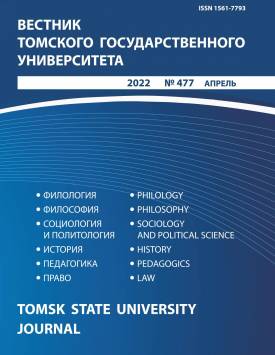Legal regulation of platform employment: In search of a concept
The aim of the article is to form an optimal model of legal regulation of labour carried out through the use of digital labour platforms. It is achieved by reaching the following objectives: to study concepts formulated in legal and economic sciences in the field of labour activity on digital labour platforms and to supplement existing developments in this area with new scientific knowledge; to clarify their names; to classify subjects of labour relations through the use of digital labour platforms; to identify and analyse problems in the current Russian legislation regarding platform employment; to propose and justify ways to solve the identified problems. The research methodology is generally traditional for legal research. Its basis is formed by the general scientific dialectical method of cognizing objective reality. The collection, processing, analysis and interpretation of the information necessary for the research and the formulation of conclusions were carried out using various general scientific logical methods (analysis and synthesis, induction and deduction, ascent from the abstract to the concrete, and others). Also, the study used various specific scientific methods of cognition: formal legal and the method of systems analysis. The main results of the study are as follows. Firstly, the author has substantiated that the conceptual apparatus of legal regulation of platform employment should be based on such key concepts as “platform employment”, “platform workers” and “digital labour platforms”. Secondly, the author has supported the view from the economic literature that it is advisable to divide digital labour platforms into two categories depending on the degree of work autonomy of persons carrying out their activities there: digital labour platforms of the “marketplace” type and digital labour platforms of the “digital employer” type. Accordingly, platform workers should include platform self-employed people and platform workers. Thirdly, the author has determined that the legal regulation of the legal status of platform workers should be carried out at three levels: general, which is inherent in all platform workers; specific, for the self-employed and for workers in general; particular, which establishes unique provisions for platform self-employed people and platform workers. Fourthly, with regard to platform selfemployed people, the author has supported the idea that they retain the status of subjects of civil law and that it is expedient to development the Russian legislation regarding the self-employed, provided they have social and labour protection in an amount corresponding to the specificity of their legal status. As for platform workers, a zero-hours employment contract model should be chosen to regulate the specifics of their work.
Keywords
platform employment, platform workers, platform self-employed, digital labour platform of “marketplace” type, digital labor platform of “digital employer” type, zero-hours employment contractAuthors
| Name | Organization | |
| Serova Alena V. | Ural State Law University named after V.F. Yakovlev | a.v.serova@icloud.com |
References

Legal regulation of platform employment: In search of a concept | Vestnik Tomskogo gosudarstvennogo universiteta – Tomsk State University Journal. 2022. № 477. DOI: 10.17223/15617793/477/30
